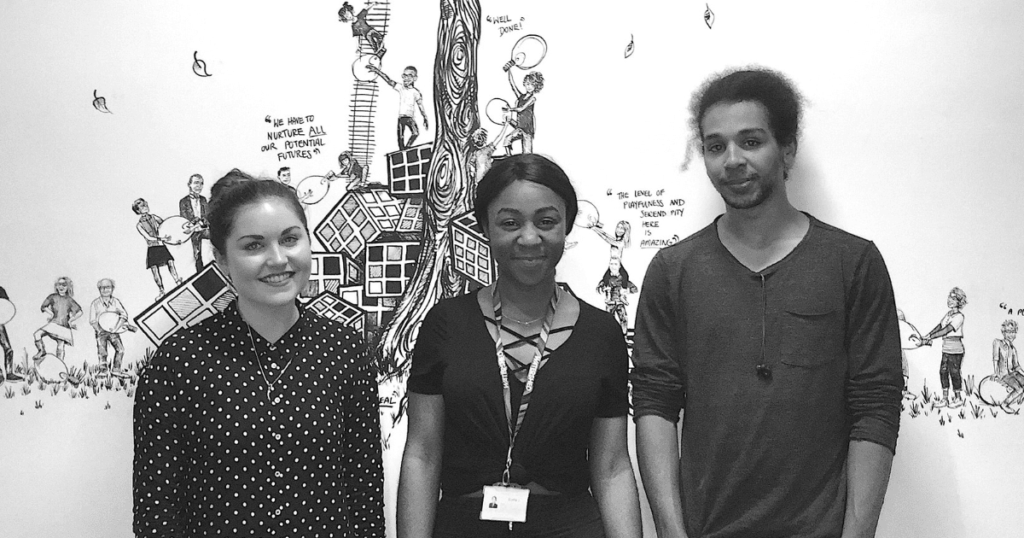Is play the new productivity hack?
Why are you putting off a task? Perhaps you do not feel confident in your ability, or it seems like a mountain to climb. It’s daunting. Do you fear it? Even if you do, there’s a fun solution for you to try.
Set yourself a reward for reaching the top of that mountain. Are you more interested in completing it? Now, to improve project management, try to breakdown the difficult and complex tasks into smaller and more achievable chunks. Add in some gamification to stimulate your motivation. Does the task seem easier now? More enjoyable, even?
Nearly a third of employees say they are not motivated at work, the Living to Work study by reward and recognition experts Motivates revealed. To counter this, can encouraging play in the workplace improve engagement and productivity?
Factors affecting workplace motivation
The Living to Work study shared the top five factors that motivate people to do well in work, in addition to their basic salary. The main factors that motivate productive and hard-working employees are:
- A feeling of satisfaction
- General work enjoyment
- Job security
- Incentives and rewards
- Working as part of a team
When you delve into these factors, theoretically, four out of five could be improved by permitting more “play” in the workplace.
- A feeling of satisfaction – Creating a more playful environment where motivation for recognition far outweighs fear of retribution. Teams will feel satisfied with their achievement with appropriate recognition, whereas fear or stress will be avoided.
- General work enjoyment – Injecting some fun into the working environment will definitely stimulate general work enjoyment. At the least, permission to laugh. At best, games in the office.
- Incentives and rewards – Gamification of tasks, as well as incentivising teams to work more productively to reach their goals for rewards, are two sure-fire ways to improve productivity in the workplace.
- Working as part of a team – Anything from collaborating towards team goals to organising office sports groups, working as part of a team will improve productivity and team connectivity at work.
The research: Can play improve productivity?
The concept of work-team performance improvements through play is not based purely on speculation. On the contrary, the outcome of greater team performance is backed by research.
In many organisations, teams can form or dissolve rapidly. This is especially the case if there is a need to solve a specific problem. Since these are often cross-functional and project-based teams, they could have diverse mixture of skills and experience. In order to solve the problem, members of these teams need to get up to speed quickly in order to become productive as soon as possible.
Researchers at Brigham Young University explored team video gaming as a team-building activity. Individuals playing team video games were cooperating and collaborating to achieve challenging goals, and all the while, they were able to enjoy playing the games.
The study found that teams demonstrated a 20 percent productivity improvement in subsequent tasks when they had played video games, compared with teams that participated in traditional team-building activities.
Generate more creative outcomes
Based on the research findings, you can improve productivity by embracing play. Therefore, you could reach a solution faster with a playful take on your group brainstorming and mind mapping sessions.
For instance, set up a mind mapping session with an emphasis on using images over words. Make a new mind map using Mind Map Pro and invite a team to join and collaborate.
Encourage the use of colour and photos for your group brainstorming and mind mapping session. Set featured images so they appear on the front of your shared mind map. When you export the mind map to Word or PowerPoint, the images will export too, meaning you have a living creative document built from a playful session.
On the other hand, you could prepare a selection of magazines with card, scissors and glue. Ask your team to use the images from the magazines to create a mood board, mind map or vision map. By inspiring a playful process that is not burdened with pressure, you may tap into a free and curious creativity.
Similarly, when problem solving, you could task your team members with drawing a solution instead of typing one. You could even suggest there should be no speaking, simply collaborative drawing. It’s likely that the outcomes will be more creative, helping you generate innovative solutions for a project quickly.
Re-engage team members
Ever wondered why your team is not engaged with the tasks at hand? Do they seem disinterested with work? You could introduce play into the equation to explore the impact on employee engagement.
Gamifying tasks could improve focus and re-engage the employees who have been slipping. Furthermore, it’s likely that bringing their attention back to work, even through play, will have a lasting positive impact by connecting them with the workplace again.
Let’s say that for each milestone reached, the individual scores a point. These points equal donations from the company that can be used in a variety of ways. For example, a team could decide to pool their points together and “spend” them on a group dinner or activity, paid for by the company through the points system.
Alternatively, points could be used to create a scoreboard on a team-by-team basis, with prizes for the best performers.
Or, you could take a less competitive edge. Points could be used through an anonymous voting mechanism, with more points meaning more votes. Teams could vote for the person they feel deserves a prize at the end of the month. Each team member will be motivated to score points and use them to ensure a worthy colleague wins the prize.
However, it’s not all about work. Playful activities outside of daily tasks can be just for fun. After all, happy people are more productive. A study by economists at the University of Warwick found that happiness can achieve approximately 12% greater productivity.
Moreover, cultivating a happy team will encourage brand advocacy. Engaged employees who feel good at work will probably talk about the positive influence of their workplace outside of work.
Build stronger teams
Whether you organise a board-game night, challenge your team to an escape room, or find yourself in the midst of an unofficial table tennis championship, playing games can greatly improve team bonding.
Humans are social creatures with empathy and compassion. We feel a sense of belonging in groups (or tribes), and the working environment is no different. Building stronger teams through playful activities will help enhance collaboration and communication in the workplace.
You can choose to organise activities or take a subtler approach. For example, playing music for productivity. Set up the equivalent of an office radio station, where every member of a team takes it in turns to play the DJ. Ask them to look for music or audio to help the whole group tap into productivity, and mix this into a playlist with songs they like and songs that are calming.
Teams will bond over shared music tastes and you can measure the impact of each acting DJ’s performance on the entire team’s productivity.
Additionally, building stronger teams could help you to build healthier teams. Better culture may well reduce stress, and stress is the biggest cause of sickness in the workplace, as we explored in our blog post on increased productivity through improved wellbeing.
Furthermore, fun group activities can often take your team outside to enjoy nature, get some fresh air by going for a walk, a run or playing team sport.
The stress-free way to improve productivity
We aren’t robots. Every person is different, every day is different. Productivity doesn’t just happen. Consequently, we can’t always work like well-oiled machines. However, introducing some playful elements into an otherwise professional setting can be an unexpected route to improved output.
Enjoy your time at work and you will feel more engaged, more dedicated and more productive.
Next up, find out what to eat to improve focus.



